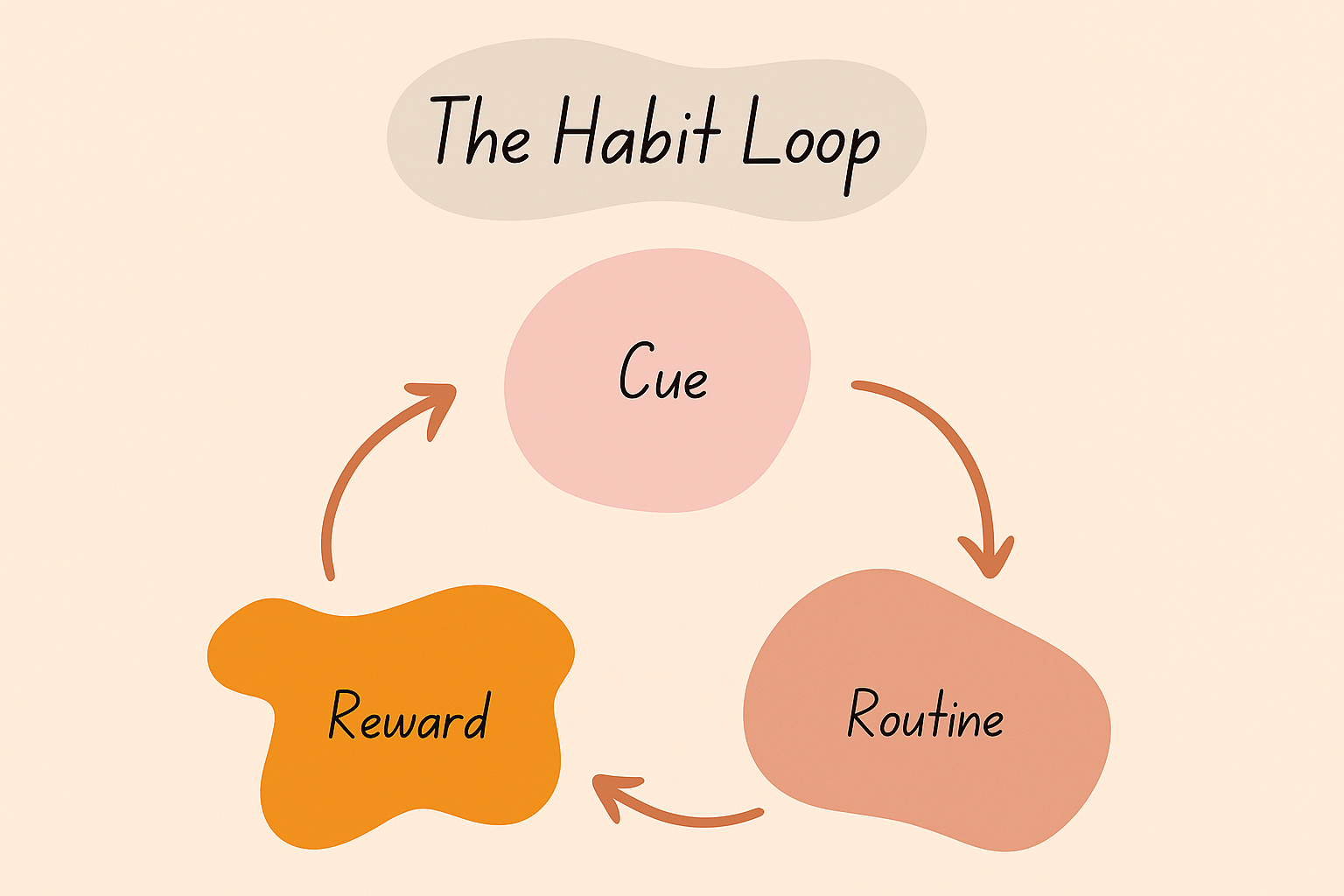The Psychology of Habit Consolidation: Why Some Habits Stick and Others Don’t
Why do some healthy habits feel effortless while others fade within days? The answer often sits in habit consolidation psychology. This area of behavioural science explains how repeated actions become automatic, why some routines embed while others slip, and how you can use that knowledge to redesign daily life. When you understand the psychology behind habit formation, you can outsmart cognitive biases, build momentum, and make better choices feel natural rather than forced.
At Nutrimelab, we take a behaviour-first approach that blends mindset, environment, and practical tools. This guide distils current thinking on the psychology of habit consolidation into clear steps you can apply at work and at home, especially if you want steadier energy, fewer snack spirals, and routines that survive busy weeks.
Why This Topic Matters
Habits are not merely a matter of willpower; they are deeply influenced by our environment, emotions, and psychological wiring. According to a 2024 review by Frontiers in Psychology, disrupting established habits,such as switching jobs or moving home,offers a chance to rethink behaviour and adopt new, healthier routines. Meanwhile, reinforcement mechanisms play a critical role in shaping our day-to-day actions, as seen in a recent study in Trends in Cognitive Sciences, which explains how repeated behaviours literally rewire our responses.
In the UK, workplace wellness is taking centre stage. An article published on Cambridge.org highlights the need for nudge interventions to improve dietary choices among employees,underscoring how habitual cues embedded in workplace settings can make all the difference when it comes to healthy eating.
Common Mistakes or Misconceptions
Relying Solely on Willpower
Many individuals assume that if they just “try harder,” they can force a habit to stick. Yet research suggests that habit formation is less about constant self-control and more about strategies that automate desired behaviours.
Ignoring Environmental Triggers
Whether it’s the biscuit tin in the office or automatic snack breaks during Zoom calls, our surroundings can sabotage our best intentions. Failing to redesign your environment means leaving powerful cues in place that reinforce unhealthy patterns.
Overcomplicating Healthy Habits
Setting grand resolutions (e.g., “I’ll run 10k every morning!”) can be overwhelming. Instead, research published in Social and Personality Psychology Compass points out that small, consistent steps are more likely to cement as lasting habits.
Not Allowing Enough Time for Consolidation
True habit consolidation psychology indicates that repetition over time is vital. Expecting immediate results can lead to discouragement and abandonment of a new routine.
Behavioural Solutions & Strategies
Below are practical tips derived from the science of habit consolidation psychology, designed to help you form and sustain healthy habits:
Leverage Environmental Cues
• Keep healthy snacks visible and within reach, especially at work.
• Swap out sugary drinks in the fridge with water or unsweetened tea.
• Use encouraging prompts, like sticky notes on your desk, to reinforce new routines.Start Small and Build Gradually
• Instead of overhauling your diet, focus on a simpler goal first, like adding one serving of vegetables to your lunch.
• Apply habit stacking, pair a new, healthy behaviour with an existing routine. For instance, drink a glass of water immediately after finishing a work call.Reinforce Positive Behaviour
• Celebrate mini-wins to boost motivation. Tracking progress in a food-mood journal can highlight improvements and keep you inspired.
• Share your progress with a friend or wellness community. Positive feedback is known to strengthen neural pathways (cell.com).Anticipate and Plan for Barriers
• Identify potential triggers and create “If-Then” plans (e.g., “If I’m stressed, then I’ll take a deep breath and make a cup of herbal tea.”).
• Use mindful awareness techniques to manage emotional eating. (Read more about “What is Emotional Eating?”)
Real-Life Example (Case Study)
Meet Claire, a 38-year-old marketing professional from Manchester. Claire struggled with frequent snack breaks and sugary coffee runs during her hectic workdays. She felt she lacked the “willpower” to change. But using habit consolidation psychology from Nutrimelab’s programmes, she tackled her environment first:
• She placed a fruit bowl on her desk and kept bottled water handy.
• Before each coffee run, she paused to reassess whether she was truly thirsty or stressed.
• She celebrated every healthy swap, like green tea instead of a caramel latte.
Within a few weeks, her cravings were more manageable, and her autopilot behaviour shifted towards healthier choices. Claire reports feeling more energised and in control of her daily routine.
Final Advice
Overcoming unhealthy tendencies and sticking to better habits is not about faultless self-control; it’s about understanding the psychology of habit consolidation and using it to your advantage. By testing small, realistic changes and leveraging your environment, you can rewire your daily routines for a healthier lifestyle.
Ready to create lasting change?
• Not sure where to begin? Take our free behaviour change quiz to discover personalised tips.
• Want to go deeper? Join our free webinar on emotional eating and learn how to manage triggers in a supportive community.
• Explore The Nourish Shift, our 5-week course that helps you build healthy habits through gradual but powerful mindset shifts.


